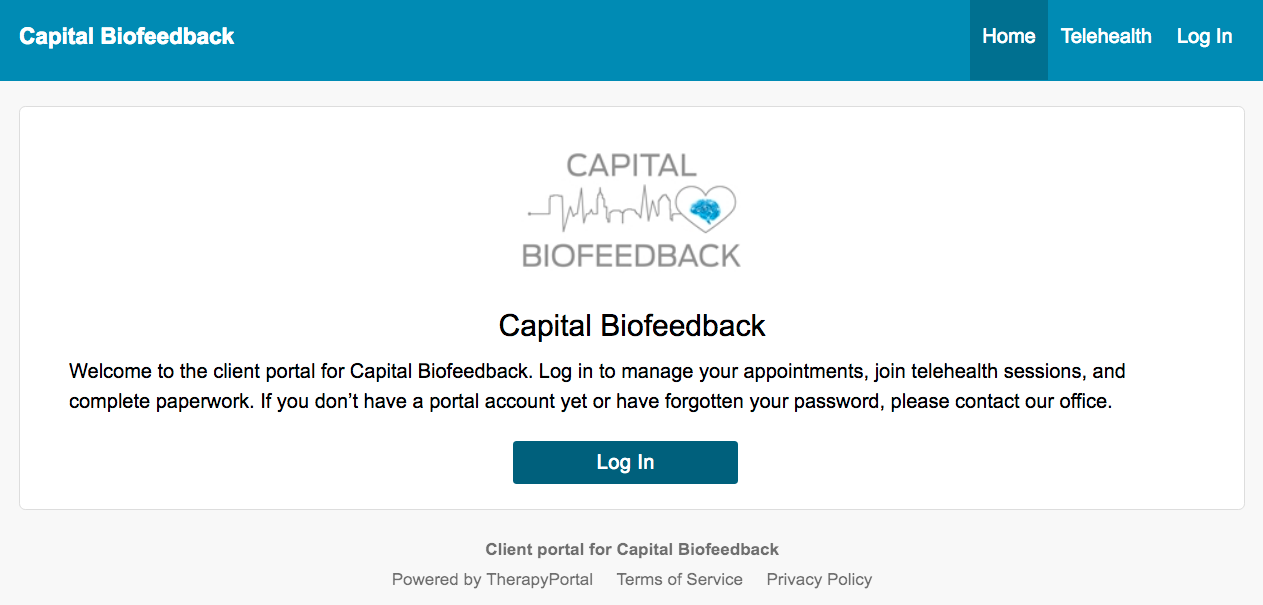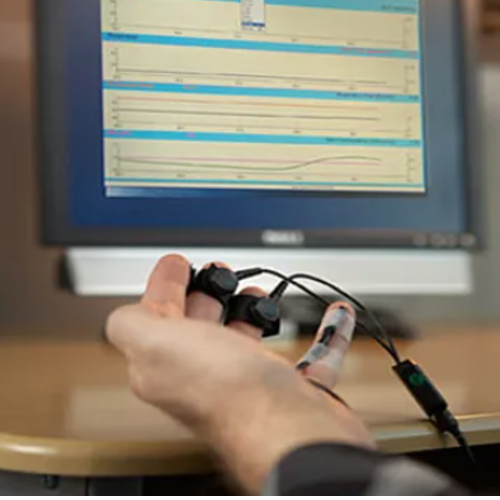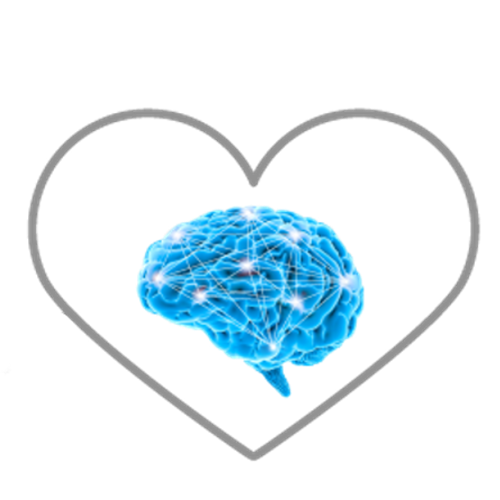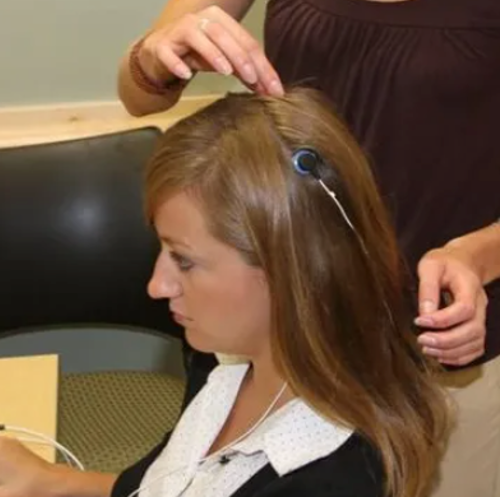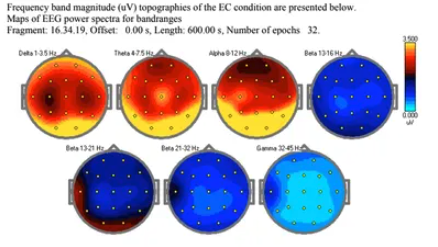Self-Regulation Through Biofeedback Training & Neurofeedback
Our Approach
Our Philosophy
Individuals may experience stress due to certain life events. Without proper coping tools, experiencing a stress response for a duration of time may result in dysfunctional patterns of behavior and psychological distress. Biofeedback provides a visual representation of these internal stress responses in real time, thus enabling the therapist to develop appropriate training protocols as well as providing validation for the individual’s lived experiences.
Our Focus
The primary goal of biofeedback training is to provide necessary tools for individuals to develop a skill-set in order to become their best self. Biofeedback allows individuals to view their responses to stress in real time, increasing self-awareness. Implementing biofeedback training in conjunction with counseling enables individuals to gain control over stress responses while reconstructing faulty thinking.
Our Promise
This therapeutic process enables individuals to decrease symptoms associated with mental health conditions, thereby achieving mental clarity and well-being. Our goal is to help you grow from your struggles, heal from your pain, and move forward to where you want to be in your life.
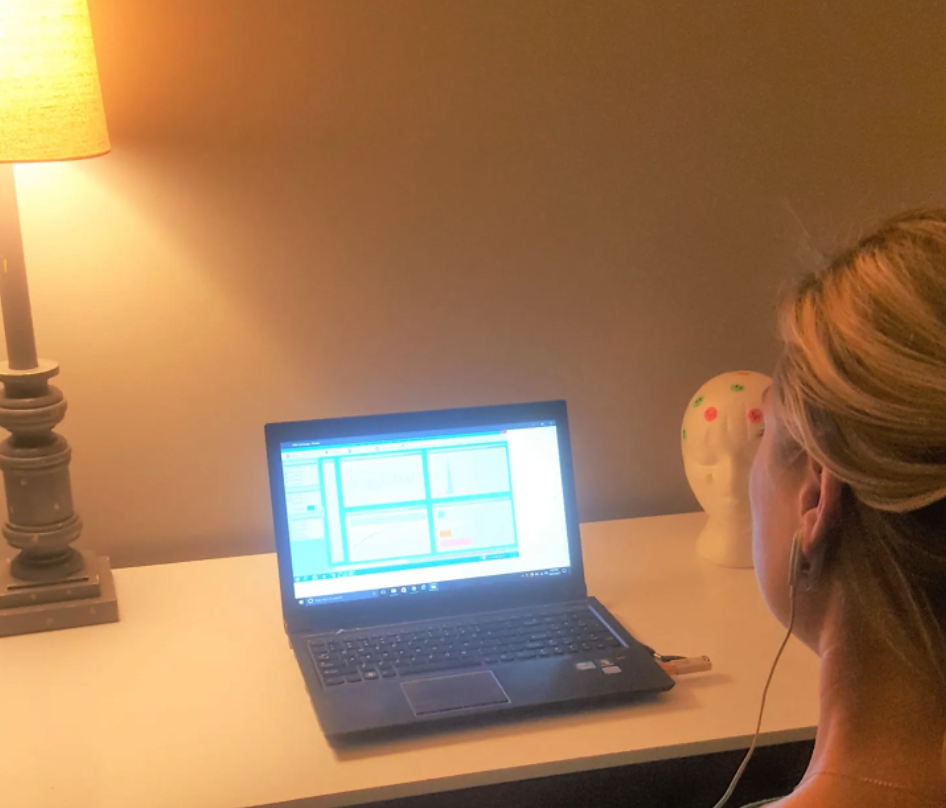
Our Therapy
Biofeedback
Biofeedback is a training modality used in conjunction with therapy. Through training, individuals are better able to understand and identify their personal, physiological responses to stress. In addition, individuals are able to manipulate their personal reactions, thus enabling control over the symptoms they experience. Non-invasive sensors are attached to the individual to measure the body’s internal reactions. These include heart rate variability, skin temperature, skin conductance, and electrical activity of the muscles. The sensors are connected to a biofeedback device which quantifies the data. The information is then displayed on a computer screen in the form of visual and auditory feedback. The therapist helps the individual make sense of the information according to their symptoms experienced and then teaches the individual how to control these parameters. With the ability to self-regulate, participants are able to diminish the impact of stress on their daily life, decrease symptoms associated with mental health conditions, and achieve emotional well-being.
Symptom Resolution
Through biofeedback & neurofeedback training, individuals learn the skills necessary to decrease symptoms associated with the following conditions:
Anxiety, Depression, Post-traumatic Stress Disorder, Complex PTSD, Attachment trauma, Insomnia & Sleep disorders, Migraines & Tension Headaches, Temporomandibular Joint, Dysfunction, Chronic Pain, Obsessive Compulsive Disorder, Attention Deficit Disorder, ETOH Disorder & Substance Abuse, Traumatic Brain Injuries, Postural Orthostatic Tachycardia Syndrome (POTS) Learning Deficits, Autism Spectrum Conditions, Grief/Loss, Co-Dependency, Eating Disorders
If you are seeking biofeedback therapy in Raleigh, neurofeedback therapy in Raleigh, or surrounding areas, call Biofeedback & Neurofeedback Training of the Triangle, PLLC for more information.
We serve clients from the capital to the coast.
Neurofeedback
Working in the same way as biofeedback, neurofeedback entails non-invasive sensors which are attached with conductance paste on various places of the individual’s head. Electrical activity of the brain, or brain wave data, is then recorded and computed with the biofeedback equipment and displayed on a computer screen for the individual to see. The therapist explains these signals in relation to thoughts, emotions, and symptoms presented. The participant can then ‘see’ the electrical activity of their brain and how this activity changes with certain thought patterns and while experiencing various emotions. The brain creates loops or ‘highways’ of information. Neurofeedback allows the individual to see these feedback loops. Training thus enables the individual to change the feedback loops within the brain and create healthier pathways. The process allows the person to regulate their own brain wave activity to improve overall mental and emotional health and achieve their desired mental performance.
Services
Biofeedback
Biofeedback allows individuals to view their responses to stress in real time, increasing self-awareness while learning to manipulate these stress responses thus gaining self-control and regulation. Common modalities include skin temperature training, skin conductance training, electrical-myography (EMG), respiration training, and heart rate variability training (HRV).
Neurofeedback
Using an electroencephalograph (EEG), individuals learn of their brainwave activity in relation to symptoms, can see these brainwaves in real time, and learn to control & manipulate brainwave activity to decrease symptoms.
Brain Mapping – Quantitative EEG (qEEG)
A qEEG (Quantitative Electroencephalogram) is a diagnostic tool that measures electrical activity in the form of brain wave patterns. It is sometimes referred to as “brain mapping.” A qEEG can reveal brain wave patterns that are associated with impulsivity, cognitive inflexibility, anxiety, and other symptoms. A qEEG is needed prior to neurofeedback training, especially if an individual has experienced head trauma.
Telehealth Counseling
If you aren’t in the area, or are more comfortable to engage in the counseling process in the security of your own space, online counseling services can be provided.
Counseling
Cognitive Behavioral Therapy involves identifying and reconstructing faulty thinking that drives negative feelings, attitudes and behaviors to become a better, more positive and realistic you.
Solution Focused Therapy involves finding solutions by exploring your hope for the future and implementing realistic goals to create positive lifestyle behaviors.
Integrated Health Care
A team approach is implemented if additional services are needed and referrals can be made for chiropractic care, psychiatry, massage therapy, nutritional counseling, herbal medicine, and more.
Holistic Health Care
A bio-psycho-social-spiritual approach involves interventions to retrain physiological basis related to symptoms, reconstruct faulty thinking, and re-establish healthier ways of functioning.
Commonly Asked Questions
Here is a list of commonly asked questions and the typical answers provided.
Who is eligible for Biofeedback? Who is eligible for Neurofeedback?
Approximately 90% of the conditions we seek help from our Primary Care Physician for are stress-related. Therefore, anyone who is experiencing a stress-response and who has the cognitive ability to participate within the sessions, makes a good candidate for biofeedback & neurofeedback training. For specific conditions and diagnoses worked with here at Capital Biofeedback, Inc., please scroll above to the Symptom Resolution section located under Our Therapy.
Does insurance cover Biofeedback? Does insurance cover Neurofeedback?
YES! Biofeedback & Neurofeedback are TOOLS used in conjunction with therapy. Dr. Tami Maes Fragedakis is a Licensed Professional Counselor and works within the scope of her license. The training individuals engage in are part of a therapeutic process. Therefore, sessions are coded accordingly under the counseling license.
If you are seeking treatment from another provider who does NOT have a license to treat mental health conditions, it will be very difficult to be reimbursed by insurance for services that are rendered for mental health diagnosis.
What insurances are accepted?
Dr. Fragedakis is paneled by BCBS. Reimbursement, co-pays and fees in which the individual is responsible for will be determined based on your plan.
How much are sessions if I do not have BCBS?
If you do not have BCBS, you pay out of pocket ($130/session). If you would like to file with your insurance, I will generate a claim form for you. You will need to file this and your insurance company will reimburse you directly according to your plan. Typically you will need to meet an out-of-network deductible. Each time you pay, you will chip away at this deductible. Reimbursement from your insurance will be made to you depending on your plan.
Is the qEEG reimbursable by insurance?
There are 2 separate charges to generate a qEEG. The first one is to record the data. This takes approximately an hour and is $130. This fee may be reimbursed or even paid for by insurance depending on the plan. The fee to quantify your QEEG and provide a brain map is $300 and insurance does not cover this.
How many sessions are required?
Participants are educated on their physiology and the symptoms experiences that directly impact this physiology. During training, individuals learn techniques to control and manipulate this physiology thus changing symptoms experienced. Dr. Fragedakis takes a therapeutic approach to training. Therefore, all training sessions include a processing component, allowing the participant to relate the training to real life experiences and symptoms.
The amount of sessions required are based on the individual and what they are experiencing and how they can gain the skills and move through the protocol. While all protocols are tailored for the individual, it is possible for individuals to experience changes within 8-12 sessions. After this time, training protocols are re-evaluated and baselines are collected again to determine if and approximately how many additional sessions may be needed.
For more information regarding the approach taken, please read our blog post –
How long are sessions in duration?
Each session is 50 minutes in length.
How often should I plan to come?
Typically, individuals will meet to train 1-2 times a week for the first 2-3 months. After the first 8-12 sessions, baselines are reassessed and treatment plans are reevaluated.
How many sessions will I need?
This typically depends on the individual and the current situation or goals you are wanting to meet. You should see gains/improvements between 8-12 sessions. With these gains, we will then re-evaluate your needs and where you are in meeting your goals. We may continue 1x/week or we may start to titrate off, meeting 1x/every other week. After a few sessions meeting bi-weekly, and if you are maintaining and generalizing skills, we may cut back even more and meet 1x/month for a few months, and then follow up 3 months after this.
Do you offer package deals?
I do not offer package deals because I do not exactly know, nor can I predict, how many sessions you will need. Each treatment plan is individually based, therefore we will work through your own treatment plan. In addition, with my counseling license I believe a package deal may be seen as unethical, as well as insurance reimbursement plans.
What can I expect?
The first session consists of an initial interview. Once this is completed, baselines will be administered. If the interview is lengthy, baselines will be administered at the next session. If you are seeking neurofeedback, a qEEG will be scheduled as a separate baseline to be administered. This will allow for the appropriate time needed to record the brain map.
Training sessions will begin as soon as baselines are collected.
Each session consists of talk therapy in conjunction with training. Talk therapy includes processing lived experiences from the past/present and how these change/influence physiology. Then each participant is provided time to train in each session, typically 20-30 minutes. Time is allotted to process the training experience as well and how the training experience parallels with lived experiences. Goals are set each week.
How will this translate to life skills?
Each week participants will be asked to report back on success stories i.e. how they managed physiological responses more effectively. As the individual gains skills to manage physiology, the stressors once faced may not feel as stressful with a lowered physiological arousal. Participants will also be asked to identify ways to incorporate training into a lifestyle, as opposed to utilizing tools when in emergency situations. Incorporating a regulated state will be beneficial to whatever circumstance is experienced.

Tami Maes Fragedakis, PhD, LPC, BCB, LRT, CTRS

Dr. Fragedakis is a Licensed Professional Counselor in Raleigh North Carolina and is board certified nationally in biofeedback. She also holds a recreational therapy license in the state of North Carolina and is a nationally certified therapeutic recreational specialist. She provides services for both children and adults experiencing mental health conditions and stress related disorders.
In conjunction with biofeedback training, Dr. Fragedakis incorporates Cognitive Behavioral Therapy and, when applicable, Trauma-Focused Cognitive Behavioral Therapy to help individuals learn to change negative thought patterns which are exacerbating symptoms. Identifying and negating one’s internal, critical voice is an important piece to the healing process. The internal critical voice may come from past lived experiences which create thought patterns as well as physiological patterns. Exploring these patterns and making sense of lived experiences can help individuals to establish healthier and more functional patterns. She also incorporates a behavioral component to treatment with Solution Focused Therapy, assisting individuals in changing behaviors which are causing or enhancing current problems.
Learn How to Choose a Biofeedback or Neurofeedback Provider
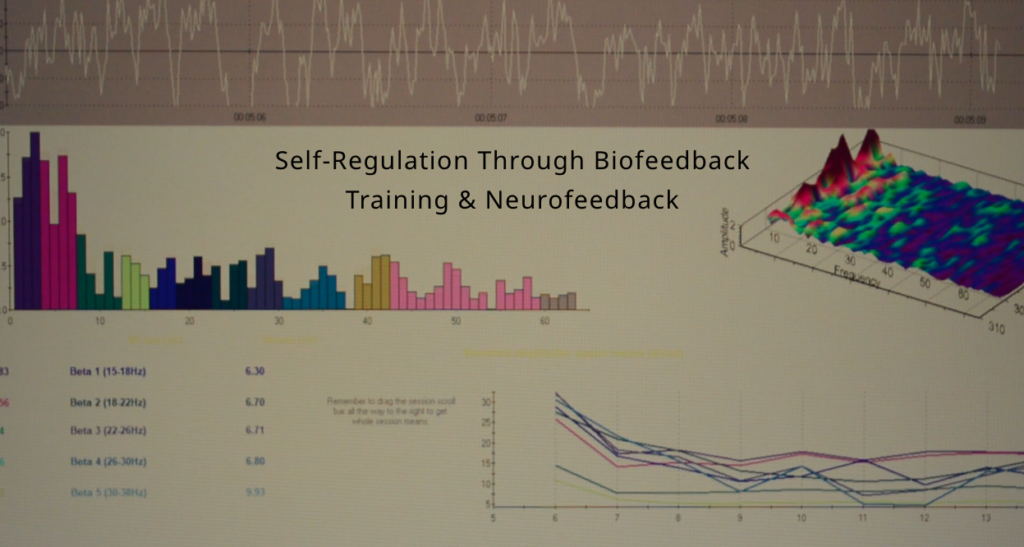
Biofeedback Blog
Contact Us
We’re Here for You
Phone: 984-664-5495
Fax: 919-786-9662
543 Keisler Dr #204 Cary, NC 27518
Facebook.com/CapitalBiofeedback
Instagram.com/CapitalBiofeedback
LinkedIn.com/CapitalBiofeedback
Please contact us with questions or to make an appointment.
Biofeedback & Neurofeedback Training of the Triangle, PLLC
Patient Portal
